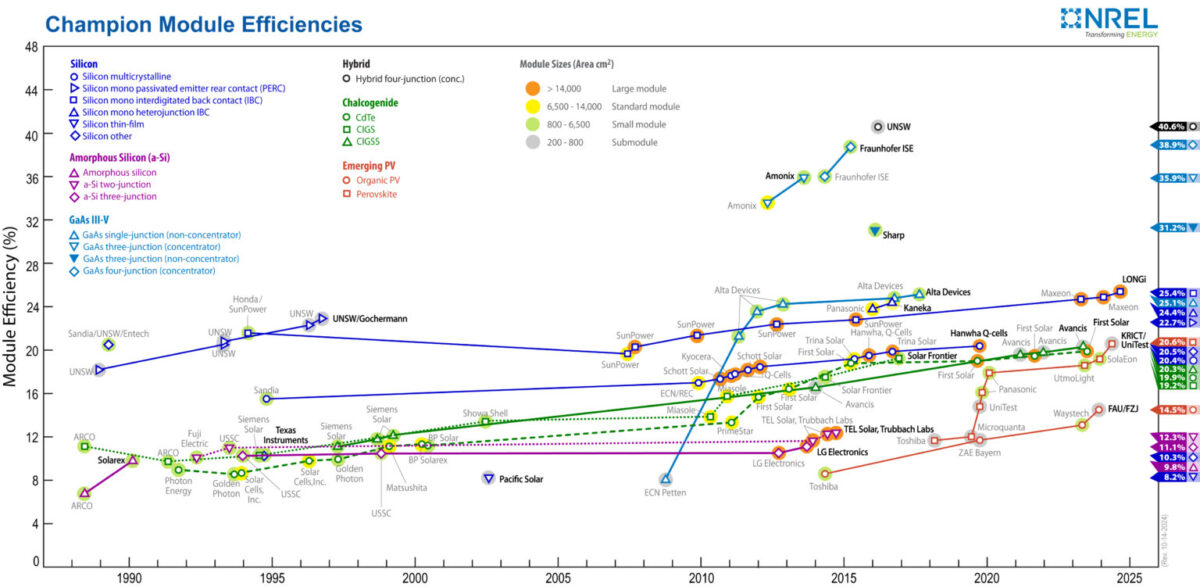From pv magazine Global
China’s Longi Green Energy has set a new world record for crystalline silicon solar module efficiency, according to a certification report from Germany’s Fraunhofer ISE.
Longi’s independently developed HPBC 2.0 module has achieved a conversion efficiency of 25.4%, surpassing previous global records.
Longi said the milestone will soon be recognized by Prof. Martin Green of the University of New South Wales in the “Solar Panel Efficiency Tables” and in the US National Renewable Energy Laboratory (NREL) “Champion Module Efficiencies” database. This marks the first time a Chinese solar company has claimed the world record for crystalline silicon module efficiency since records began in 1988.
The new efficiency of 25.4% surpasses the previous record of 24.9%, set by Maxeon in January with its interdigitated back contact (IBC) module. This half-percentage point increase represents a significant leap in a field where efficiency gains have typically been incremental. This breakthrough also pushes crystalline silicon module efficiency past the 25% threshold.
Since SunPower set a record of 20.3% efficiency in 2007 using IBC technology, back contact (BC) solar cells have dominated the efficiency rankings. BC technology, known for its high efficiency and compatibility, has achieved eight consecutive world records in crystalline silicon module efficiency over the past 30 years.
Longi told pv magazine that while the new record is an R&D breakthrough, it continues to try to improve the efficiency of its mass-produced panels. Currently, Longi’s HPBC 2.0 modules for commercial shipment have now reached an efficiency of 24.8%.
Earlier this month, Longi launched its Hi-MO X10 series modules, featuring HPBC 2.0 cells with a production cell efficiency exceeding 26.6%. It has also introduced several other models, including the Hi-MO X6 and Hi-MO X6 Max, based on HPBC 1.0 cells, and the Hi-MO 9, which features HPBC 2.0 technology for utility-scale solar.
This content is protected by copyright and may not be reused. If you want to cooperate with us and would like to reuse some of our content, please contact: editors@pv-magazine.com.








1 comment
By submitting this form you agree to pv magazine using your data for the purposes of publishing your comment.
Your personal data will only be disclosed or otherwise transmitted to third parties for the purposes of spam filtering or if this is necessary for technical maintenance of the website. Any other transfer to third parties will not take place unless this is justified on the basis of applicable data protection regulations or if pv magazine is legally obliged to do so.
You may revoke this consent at any time with effect for the future, in which case your personal data will be deleted immediately. Otherwise, your data will be deleted if pv magazine has processed your request or the purpose of data storage is fulfilled.
Further information on data privacy can be found in our Data Protection Policy.